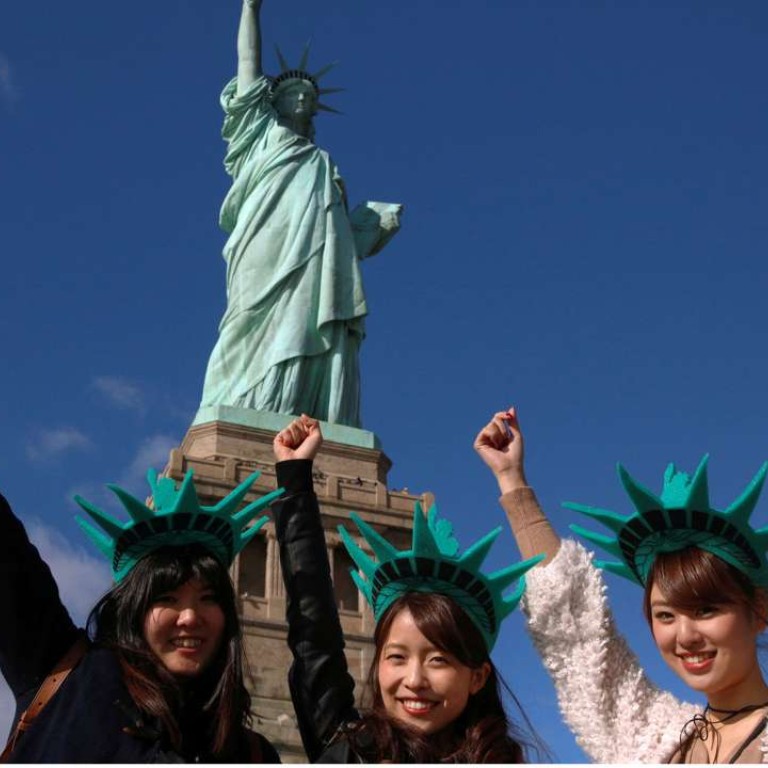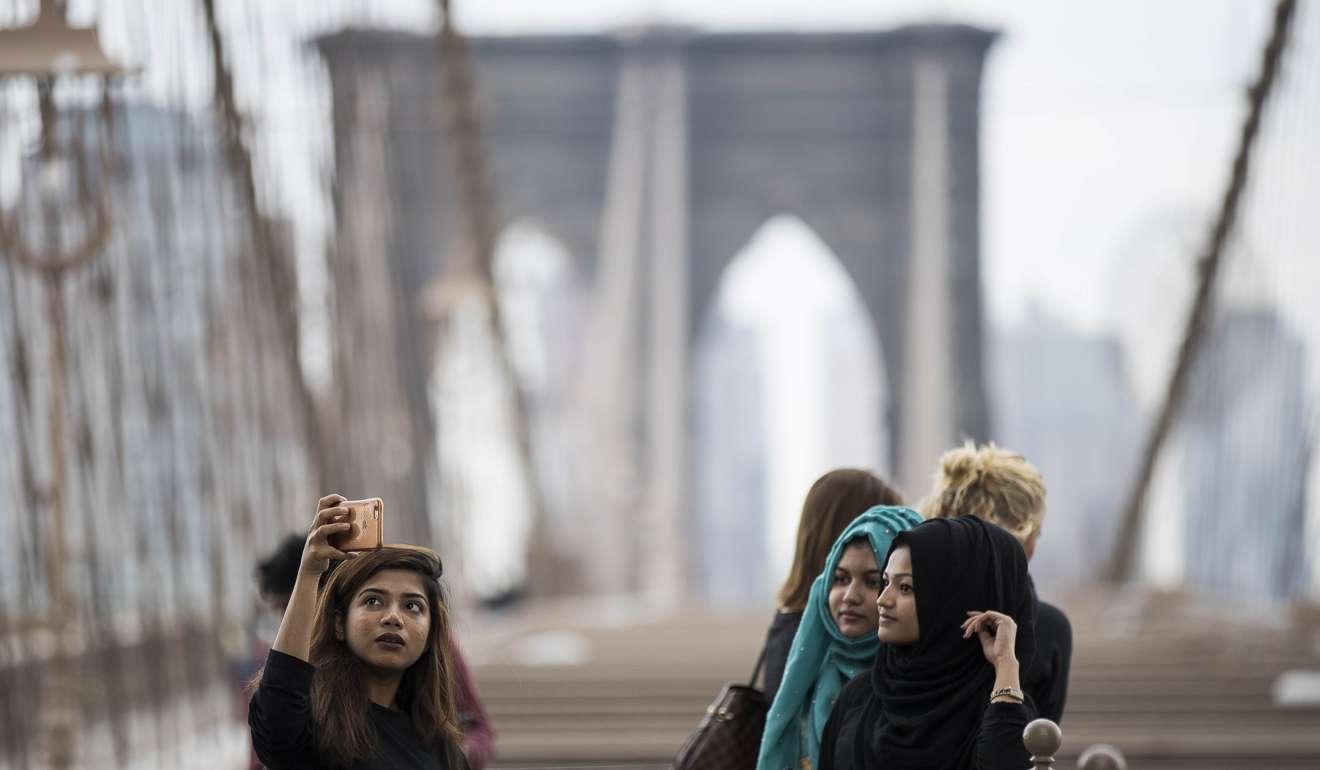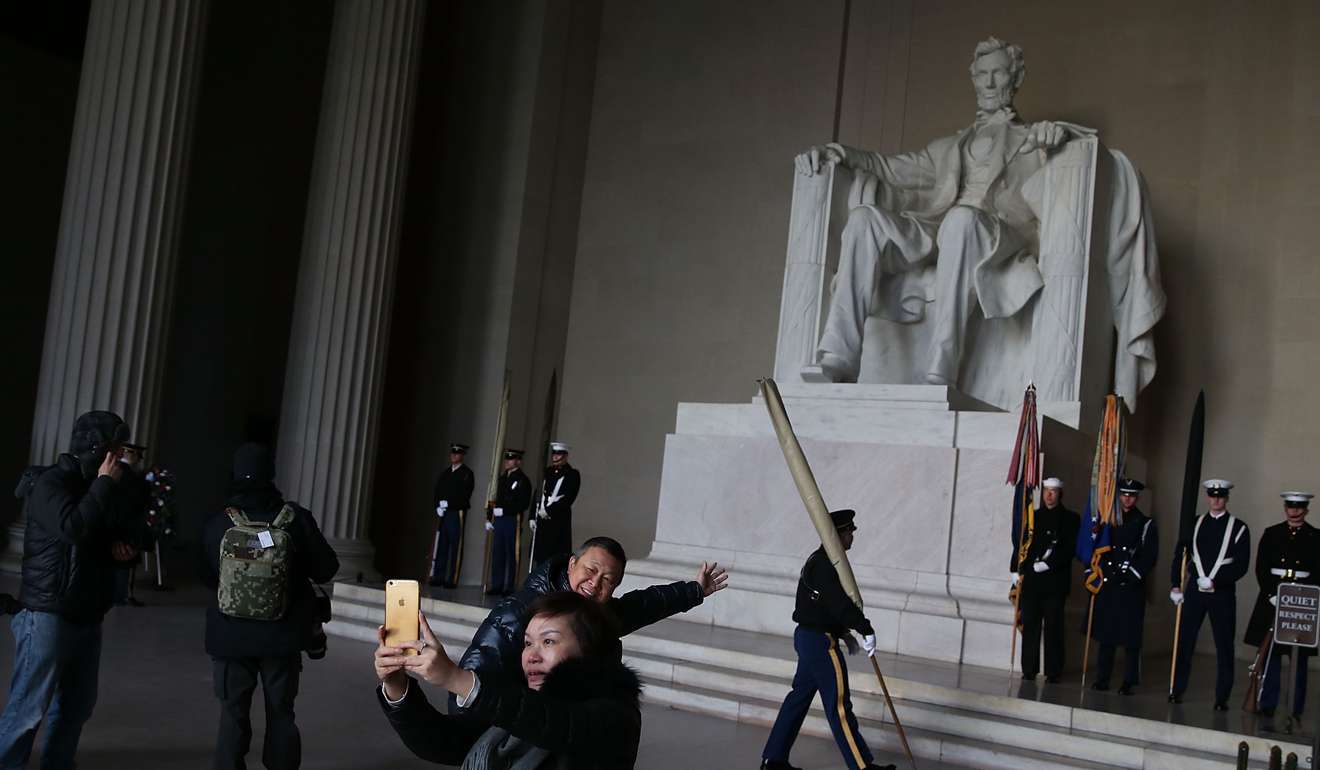
The Trump effect: many foreign tourists say they’re afraid to visit the US
During spring break, Canadian families used to pile the kids into a tour bus and head to New York to see the Statue of Liberty, Rockefeller Center and other attractions. It was the start of the busy season for Comfort Tour, a Toronto-based company that usually brought between 200 and 300 tourists to New York in March.
This year, 11 people have signed up for the tours.
“Even white, Anglo-Saxon people, who are most of our customers, they are afraid of crossing the border,” said Al Qanun, manager and part owner of the travel agency. “They don’t want to end up in some prison.”
The fallout from US President Donald Trump’s executive orders limiting travel from some Middle Eastern and African countries is having far-reaching implications for US. tourism

When I got to my hotel room, I completely collapsed and sobbed like a baby
The Toronto Star newspaper in late January published a commentary calling on Canadians to forgo unnecessary trips to the US until Trump is out of office.
Ana Teran, an essayist and short-story writer from Mexico City, used to make three or four trips per year to the US., where she lived and studied in the past.
On her last trip, a weekend visit in mid-February to see a friend who had a heart attack, she said she was pulled out of a line at Dulles International Airport outside and made to sit three hours before she was finally admitted. She was only briefly questioned and not given any explanation about why she was held, although she assumed it was because of her Mexican passport.

An economic consulting company that has crunched the numbers from various airline and travel booking websites projects that the US will lose 6.3 million visits by the end of next year, which translates into US$10.8 billion in spending. Tourism Economics said “Trump-induced losses” could affect an estimated 90,000 Americans whose jobs are directly or indirectly dependent on tourism.
“It doesn’t take very much uncertainty or antipathy to influence decisions away from a given travel destination,” said Adam Sacks, the company’s president. “Ultimately, destinations and companies are in the business of building a brand and a message that is welcoming … . All the ‘America first’ rhetoric in various policy areas like trade, diplomacy and immigration is conveying the exact opposite.”
Among the cities that stand to lose the most are New York, Miami, Los Angeles and San Francisco. New York expects to lose 300,000 foreign tourists this year, a big worry because foreigners drop the big money, spending about four times as much as domestic tourists, officials said.
The city recently rolled out a new campaign that — without mentioning Trump’s name — tries to distance the city from its native son.
“People know that New York is a city of immigrants, that we pride ourselves on diversity and tolerance. But Trump is also from New York, so who knows if that has created confusion,” said Christopher Heywood, senior vice president of NYC & Co, the city’s official tourism agency.
Heywood was speaking from Berlin, where a major travel trade show, ITB Berlin, is being held, with the US political situation one of the main topics of discussion among participants.
“It is a perception challenge,” he said. “People worry what will happen to them at the border. They worry if their cellphone will be searched, what (passwords for) websites they will be asked to jot down.”
A survey released Wednesday by the Washington-based Global Business Travel Association found that 45 per cent of European business travel professionals say they are less likely to schedule meetings or events in the U.S.
“There is no doubt that these travel bans will have an impact on (economic activity) and jobs,” said Michael McCormick, executive director of the association.
Trump issued a new order last Monday that removed Iraq from the list of countries whose citizens are barred from entering the U.S. and clarified some of the confusion arising from his original order. Nevertheless, travellers’ horror stories are mounting, giving many prospective tourists pause.
“I felt like I had been physically assaulted, which is why, when I got to my hotel room, I completely collapsed and sobbed like a baby,” Fox told the Australian Broadcasting Corporation after her interrogation last month. “And I’m 70 years old.”

